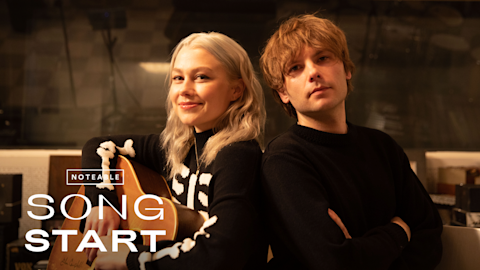Stories
Examining Race, Metal, and Subversion With Zeal & Ardor

Project founder Manuel Gagneux gets candid about the music press, his career ambitions, and the role music can play in times of political strife.
Zeal & Ardor—who dropped their highly anticipated second album, Stranger Fruit, in June—have to be one of the most unique musical projects to have blown up this decade. While there’s no shortage of musicians who boldly expand the boundaries of black metal (such as Deafheaven and Wolves in the Throne Room), few match the daring of Zeal & Ardor founder Manuel Gagneux. By splicing the genre’s wraith-like shrieks and eerily blurred guitars with ghostly chants and brooding riffs rooted in African-American spirituals and blues, he has forged a sound that feels as though it exists outside history. It’s mysterious and alien, even demonic at times, yet it also courses with political defiance, violently railing against racism and social injustice.
Gagneux’s backstory is just as intriguing as his music. The Swiss-American musician, whose mother is African-American, famously started Zeal & Ardor in response to an anonymous racist he encountered while posting music online from his previous project, the baroque pop-focused Birdmask. As Zeal & Ardor’s profile has skyrocketed, so too have interviews, reviews, and think pieces all attempting to decode Gagneux—his music, his politics, and how they intersect with his identity. He’s already attained a wealth of knowledge about how to craft a public image while still remaining true to yourself, the importance of subversion, and the issues that come with navigating a mediasphere still struggling with racial stereotyping and intolerance.
Spotify for Artists: The backstory to Zeal & Ardor—that the music initially was a response to a racist poster on 4chan, that you are a metal fan who happens to be a person of color as well, that you were raised in Switzerland—dominates your press coverage. It seems as if you have to answer the same half-dozen questions in every interview. Is it important for an artist to try and control how they are portrayed in the media? Do you worry about getting pigeonholed?
Manuel Gagneux: I’ve quickly learned I can’t control how I’m portrayed. Putting time and effort into that is too much for any artist. At the end of the day, readers appropriate the text and interpret it how they want. All I can do is just be as honest as I can.
It seems as if people of color who play heavy metal and hard rock frequently are framed as novelties by our predominantly white music press. It’s like there has to be this “OMG!” factor worked into the coverage. How do you deal with that?
I wouldn’t even address that in an interview because I’ve loved metal since I was young. As soon as it became a talking point, then I would become that token black person playing metal, which is something I try very much to avoid.
Now that you’re making your way through the music industry’s hype machine, what kind of advice do you have for other people of color who may encounter stereotyping and racism within the mediasphere?
Be conscious of what you’re saying but don’t bend yourself. It’s one thing to have a healthy message; it’s another to distort yourself. I guess what you could call suppressed groups need normal faces with normal lives. If everything you do is for the cause, that’s very good. But there has to be a casualness to it.
Zeal & Ardor seem to dig subversion. Whether it’s esoteric symbols and an image of American slave Robert Smalls adorning an album cover or your beautifully cryptic videos, you have this knack for invoking mystery and keeping fans guessing.
I like playing with people’s expectations—not to piss them off but just to have fun. For instance, the first single from Stranger Fruit is “Gravedigger’s Chant,” and it doesn’t have any metal elements in it. That was a cheeky move, and then the one after that, “Waste,” is pure, black metal evilness. Subversion often is associated with playing tricks on people, but in the end it’s just surprises. And I like surprising people.
Do you think subversion can also play a role in keeping an artist’s music fresh and alive?
Totally. It means both the artist and the fans can’t get too comfortable. I need challenges and reinvention. They are healthy. They are dynamic, living, and changing. The easiest thing I can do is to continue to make Black spirituals mixed with black metal. Maybe I could be really successful with it, but I doubt I would be happy, and that I would be elevating culture.
Do you see yourself ditching the Zeal & Ardor sound at some point?
I do. If I get to a point where I’m forcing myself to make this music, or if I don’t enjoy it, then it won’t make for good music, and that’s entirely noticeable to fans. At that point, an artist has to move on to something different. And I’m not being romantic. It’s just how it is.
In terms of boldly embracing new ideas, David Bowie comes to mind. He was a genius at reinvention, as well as bucking expectations of both the music press and fans.
He reinvented himself multiple times. He had this total lack of postpartum depression. He could get rid of something and be fascinated with something totally new, and with a conviction that’s infectious. I would love to be able to do that, but it’s also something I’d like to see more of in other artists. Just not playing it safe. Trying something new sounds so simple, but it actually is a focal point.
Is there an element of subversion to your embrace of black metal, a genre that has a history with fascism and white supremacy?
I wouldn’t say I’m subverting black metal, but if there’s a heavy connotation with its link to fascism, and if there’s a Black artist embracing it, then maybe I can steal the weight of the music and relativize its original message. That’s definitely an idea I’m fond of. But I have to be honest, that wasn’t my original intent. I just liked the way the music sounded.
With a title that nods to Billie Holiday’s legendary anti-racism anthem “Strange Fruit,” Stranger Fruiter definitely feels like a commentary on racism and modern American politics.
I’m kind of an outside observer. But making the music I do, it would be cowardice to not address the orange elephant in the room or just the political climate in general. But I find it important not to tell people what to think because, as with fans reading my interviews, I don’t know if people listening will perceive it as I do. But if I can make people debate and talk, then I’m certainly happy with that.
What are there pitfalls to being a politically conscious artist?
It’s a delicate thing. I really want the art to be accepted as it is, regardless of my political and personal convictions. The biggest problem I have with politicians is how they try to make people think what they think. It would be hypocritical of me to do the same. So, I tend to keep my political views to myself. Yet as an artist, I do want to draw attention to things that I think are important.
On the musical level, it’s tricky. Overtly political music can turn didactic way too easily. Zeal & Ardor, on the other hand, seem to take a more poetic approach to such commentary.
Yes, there’s a danger there. Let’s say I wanted to try and convince listeners of my convictions. Well, they’re only going to be as strong as the music. If I make a terrible song with a good message, then that’s just going to be useless.
-Justin Farrar
Spotify for Artists helps you to develop the fanbase you need to reach your goals.
video
How Julia Wolf Made It



